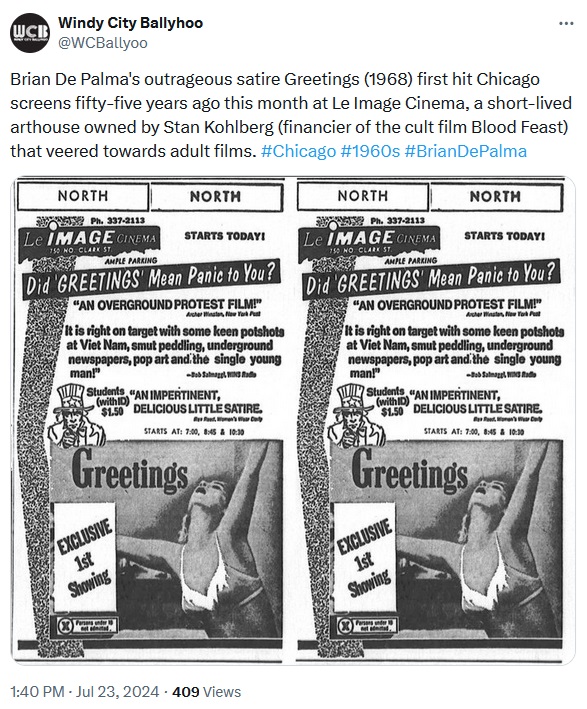
 Hello and welcome to the unofficial Brian De Palma website. Here is the latest news: |
|---|
E-mail
Geoffsongs@aol.com
-------------
Recent Headlines
a la Mod:
Listen to
Donaggio's full score
for Domino online
De Palma/Lehman
rapport at work
in Snakes
De Palma/Lehman
next novel is Terry
De Palma developing
Catch And Kill,
"a horror movie
based on real things
that have happened
in the news"
Supercut video
of De Palma's films
edited by Carl Rodrigue
Washington Post
review of Keesey book
-------------
Exclusive Passion
Interviews:
Brian De Palma
Karoline Herfurth
Leila Rozario
------------
------------
| « | August 2024 | » | ||||
| S | M | T | W | T | F | S |
| 1 | 2 | 3 | ||||
| 4 | 5 | 6 | 7 | 8 | 9 | 10 |
| 11 | 12 | 13 | 14 | 15 | 16 | 17 |
| 18 | 19 | 20 | 21 | 22 | 23 | 24 |
| 25 | 26 | 27 | 28 | 29 | 30 | 31 |
De Palma interviewed
in Paris 2002
De Palma discusses
The Black Dahlia 2006

Enthusiasms...
Alfred Hitchcock
The Master Of Suspense
Sergio Leone
and the Infield
Fly Rule
The Filmmaker Who
Came In From The Cold
Jim Emerson on
Greetings & Hi, Mom!
Scarface: Make Way
For The Bad Guy
Deborah Shelton
Official Web Site
Welcome to the
Offices of Death Records
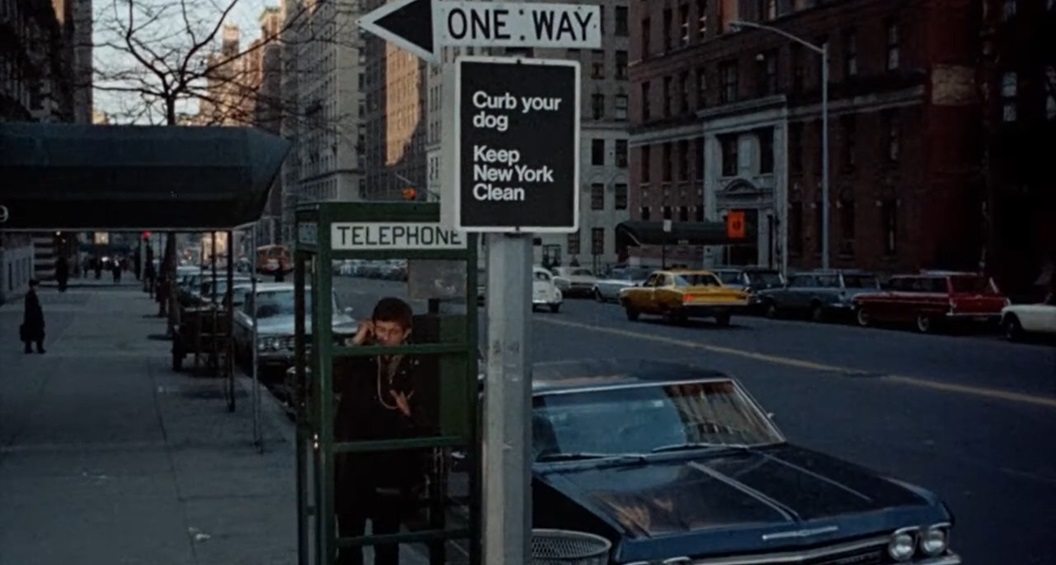
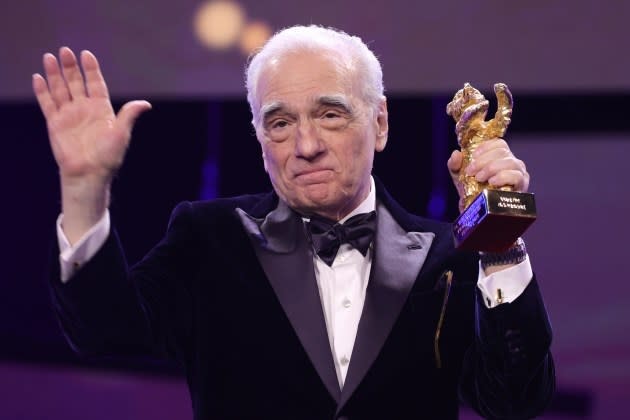
“It was a very important event and it was a real turning point for all of us — for Brian, of course, and by extension all of us who were working low-budget in America at the time, particularly not in Hollywood. Low-budget, independent pictures were quite rare in America at the time, and it helped open the way for filmmakers like Jim McBride and Phil Kaufman, for myself,” he said. “It gave a stature in a sense that the studios started to take us seriously … It paved the way for me meeting up with Bob De Niro and casting him in ‘Mean Streets.’ And 10 years later, I would come to Berlin for the first time with ‘Raging Bull,’ opening night 1980 and then back again with the Rolling Stones for ‘Shine a Light,’ and then again with ‘The 50 Year Argument.'”Scorsese went on to say that film festivals are where he has met his community of fellow filmmakers, Wenders included.
“Watching each other’s pictures, complimenting each other, arguing with each other, going down our own paths. I mean, what else can one do when you become obsessed with an art form?” Scorsese said. “When you live it, when you have to be on your own. That’s the lonely part, but it’s so important to remember that, even though it’s lonely, that you’re part of a community. And that community of people is driven by an obsessive love with this art called cinema.”
Scorsese added that “the work that we do individually is part of an ongoing, ultimately endless conversation” before teasing that he may make his return to the Berlinale sooner than later.
“I really feel that I’ve been blessed to have taken part in that conversation for most of my life now,” he said. “And as for looking back on my work, I can’t … partly because I really do seem to keep wanting to make pictures. So maybe I’ll see you in a couple years, I hope with another one.”

[Brian De Palma] had managed to establish himself as promising, and as a promising director, he was entitled to the polite interest of at least one of the recurrent Hollywood new talent programs. In fact, he spent months sitting around the offices of Universal in New York with Charles Hirsch, the head of the studio's new talent programs. "Out of that frustration," he says, "smoking cigarettes and waiting for someone to return our calls, we came up with the idea for Greetings." Hirsch's title was grander than his power. He had been appointed because Universal thought he knew New York directors, and he might find some bright new filmmaker; but before Easy Rider's success it was hard to persuade the studio to take any of his recommendations seriously. When Greetings was made Universal kept its distance; its basic conservatism had always led it to consider new talent programs much as it would consider charm schools for aspiring starlets: decorative, but not functional. The film was started on 16mm, with $10,000 that Hirsch raised from his parents and from a friend of his parents. "We started to shoot," DePalma remembers, "but there was something wrong with the camera and everything came out a little soft. That took up a whole week of shooting, half our schedule. We looked at the material, and I said to Hirsch: "The worst thing about this is the way it looks. Let's go to 35mm." Fortunately, the laboratory scratched the first material we sent them, all the way through. They felt so badly about it, they gave us the rest of the film and the processing free."The film was made for $43,000; it took in more than $1 million. It brought DePalma general recognition for the first time. With his crew of eight, who were friends and students from New York University, he managed to make a virtue out of the limitations under which he was working. Purely for economy, he used very long takes. These tend to allow improvising actors to maunder on, but they also give the film a loose, episodic character that develops an exhilarating picture of the generation of 1968 and their particular problems and obsessions. Just because it was shot while the worries were real, it has a raw edge that later reconstruction cannot bring. The film's heart is the plan of three friends to help one of them evade the draft, the most immediate problem facing most of the people working on the film at the height of the Vietnam war in 1968. In its three episodes one man has to be kept awake all night so that he can be exhausted in mind and body when he goes before the draft board. The treatment is picaresque, a series of near hallucinatory encounters. In the second section DePalma returns to his constant obsession with the killing of President Kennedy; in a prolonged take he shows a would-be expert on the assassination tracing the path of the bullets across the naked body of his girlfriend. It is a repellent image which captures the weird erotic charge that talk of the Kennedy killing carries in necrophilic radio shows and publications. In the last section DePalma nods to the changes in sexual attitudes: one of his central characters is fascinated by pornography and is inventing a new form of art— peep-art. With all three components put together, sex, assassination, and the draft show a group of young Americans at a point of cultural transition. And they are shown in a context that is real, for Greetings is a street film, where the locations are exact and the extras are actually men who are to be drafted. Greetings becomes a report on the past.
This time the finished film did find a distributor. Frank Yablans saw it. He had not yet climbed his way to Paramount and The Godfather, and he was years away from his role as an independent producer at Twentieth Century-Fox, where he produced DePalma's The Fury. He was working with a small-time New York distributor called Sigma 3, which specialized in the sort of films that played art houses across the country. Yablans was excited by the film. He bellowed at his bosses: "If you don't pick up this film, I'm quitting." And, by himself, he stomped round the country to sell the film. DePalma still remembers his campaign with awe. "Literally," he said, "Yablans went from theater to theater with the print under his arm."
The film made money but DePalma saw little of it. It also won the Silver Bear award at the Berlin Film Festival. It was a critical success that was also marketable, largely on the peep-art sequences.


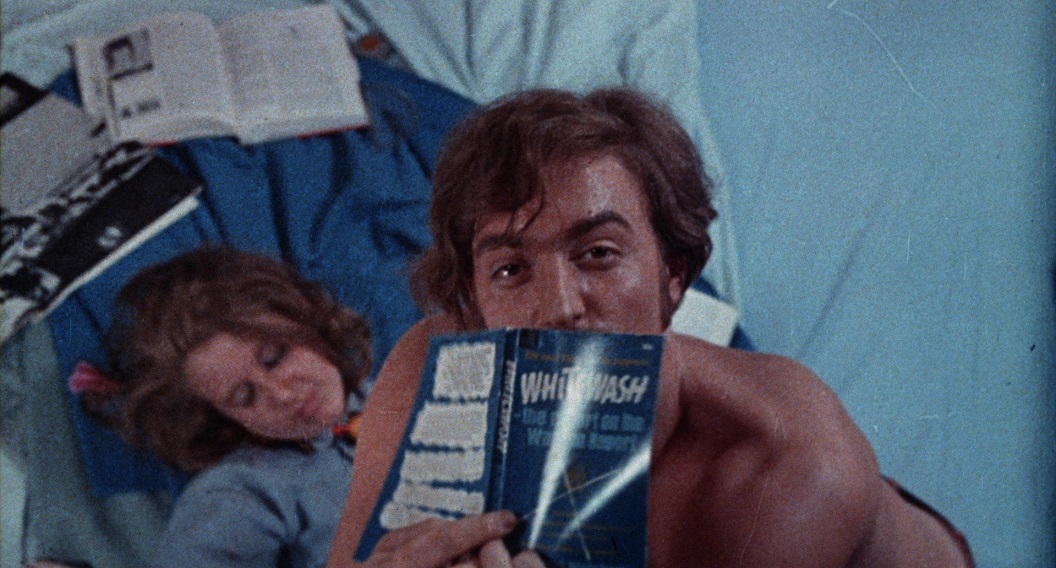
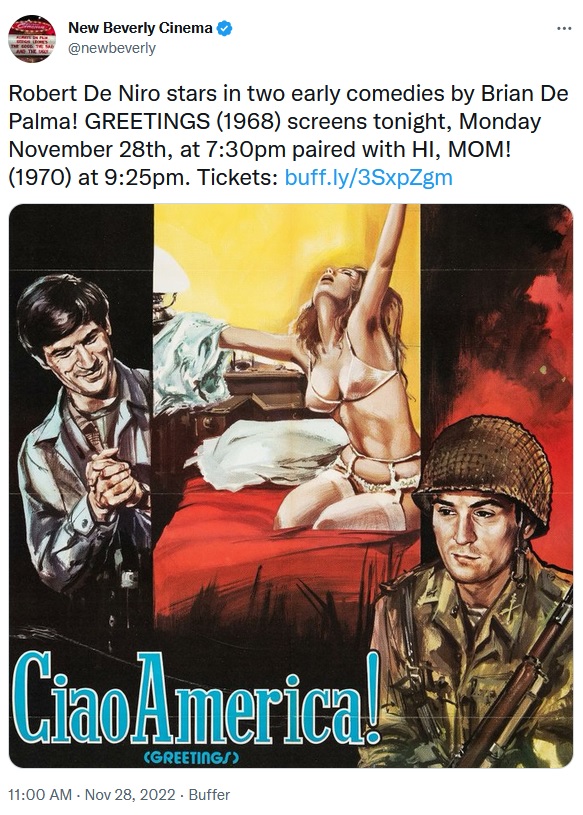
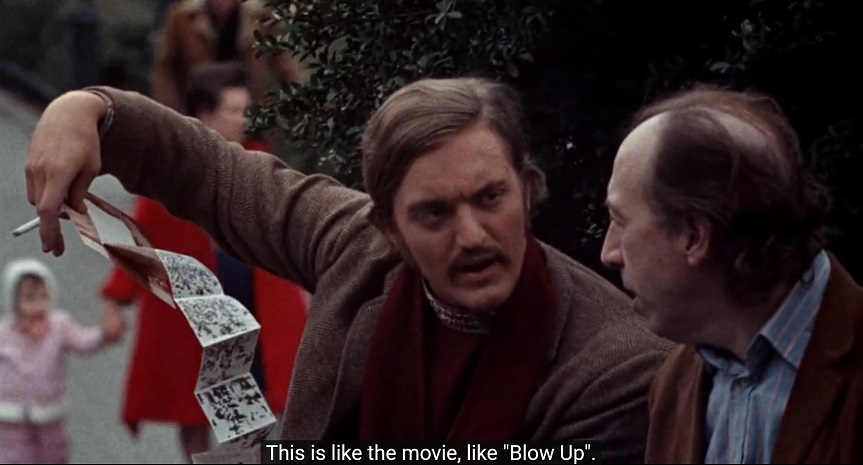
Taking inspiration from Jean-Luc Godard and the French New Wave, as well as Richard Lester’s ‘A Hard Day’s Night’, it’s a free-wheeling, hip, youthful third feature by De Palma.And that’s how it plays out for the first half with sped-up sequences of tomfoolery set to era-appropriate pop music, semi-improvised slacker talk, fourth-wall breaks and a scattershot, comedic vibe like a sort of anarchic sketch show or a cinematic ‘happening’, man. It works, mostly, and is funny, mostly. I was having a good time.
Then De Palma suddenly exerts himself with a couple of set-pieces that could come from no-one else but him, like he’s had a sudden artistic growth spurt caught on camera. The change happens when De Niro’s character delivers an address to camera on the psychology of “peeping” and the sexual aspect of watching. Once all this has been described for us (thanks for the lecture, Brian!) we then see it demonstrated before our very eyes with De Niro filming a young woman whilst directing her for our pleasure and we get to reflect on the process of seeing. It’s nicely done but it’s the “gag” comes at the end with a brief misdirect followed by a double-punch line that’s really cool. Oh, he’s watching it on a screen after a… ah, no he’s not! De Niro walks “through” the camera (“What are you doing coming in through my window?!”) and physically invades her space. It’s clever, funny and very, VERY De Palma.
That’s followed by another cool scene that’s pretty remarkable and pays off an earlier scene which explained how we can identify people and objects from the most minimal points of visual information. The camera is filming a guy at a party as he talks about stoners. We’re listening although De Palma starts playing with the focus and depth of field so we’re drawn to De Niro who is standing in the far background although our attention is then quickly hijacked by a pretty women filling the visual space only to be replaced by another man in the background in a red top inspecting a glass. The focus then shifts back to the foreground and the first man, who is still talking but are we listening? Our attention is still on the background although the people we are watching are now nothing more than points and slices of coloured light, as though we are standing too close to a moving Seurat painting. It is gorgeous and allows De Palma to present to us a beautiful effect of moving colours and shapes that blurrily exist on the edge of coalescence. It’s the sort of shot he would’ve used his precious dioptre for in later films but here, without it, the effect is wonderfully impressionistic. The film has shifted from a youthful romp to something else; something brimming with confidence.
Perhaps too much confidence that’s quivering on the point of over-spilling because although ‘Greetings’ is inventive and smart it is also didactic and arrogant. A number of times De Palma lectures (he might call it “priming”) us on various aspects of filmmaking so he can pull off a big reveal. Fair enough and it helps sells his gag but there’s also a self-congratulatory air about the proceedings, especially when one character (a dirty movie seller) starts telling De Niro (us) how beautiful what we’re watching is. He’s right, it is beautiful, but if someone was to say De Palma is arrogant then, from the evidence here, I’d not object. Likewise, if someone said these were nothing more than film-school formal experiments I would not disagree. But boy, they’re fun and pretty.
If you are a De Palma fan (which I most certainly am) you’ll enjoy ‘Greetings’ simply from seeing a distinctive and talented director demonstrating and exploring his style. What is also fascinating is how much later De Palma is already here, almost fully formed. Characters discuss Antonioni’s ‘Blow Up’ and political paranoia, essentially laying out the entire concept for ‘Blow Out’ before our eyes. Likewise with ‘Casualties of War’ and the horrors inflicted, specifically, on Vietnamese women. And it should come as no surprise that there is so much comedy here as De Palma has always demonstrated an acute sense of humour in his movies, even if it is often covered in a veneer of set-piece sleaze and thrilling voyeurism.
One of the funniest moments (which I’ll spoil so feel free to skip this paragraph) involves Robert De Niro when his attempt to dodge the draft backfires. After telling the army psychiatrist his most psychotic, racist, murderous, insane, offensive, right-wing, violent, psychopathic thoughts which he hopes will get him rejected for their extreme nature, he’s causally told — “You’re just a little over zealous.” It’s funny as hell and gives a wonderful, subversive punch to that particular anti-war thread.
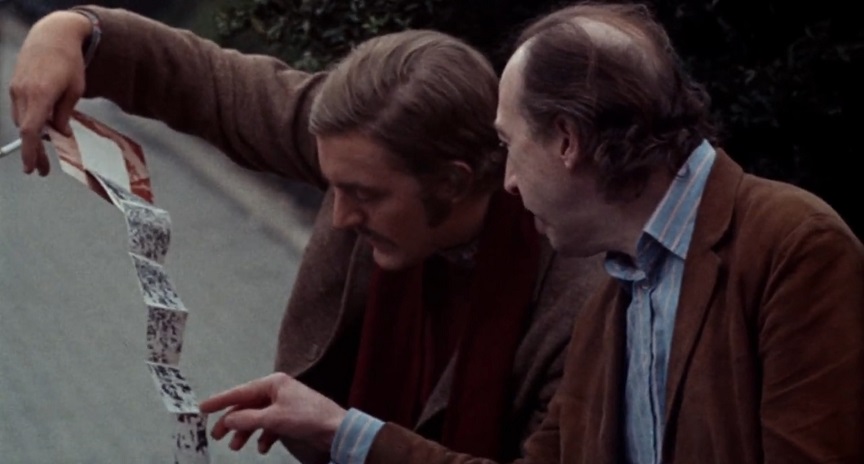
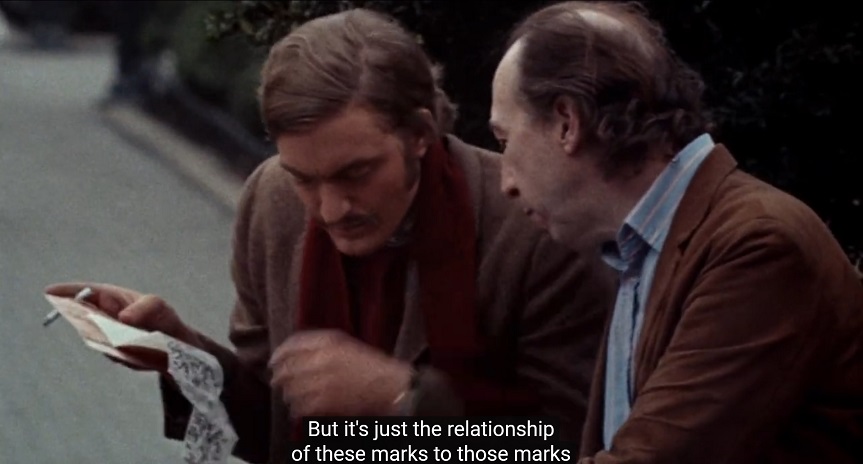
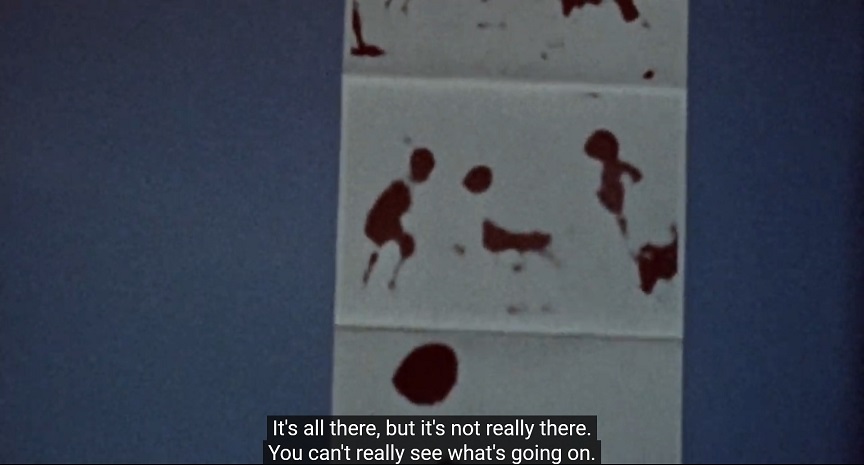
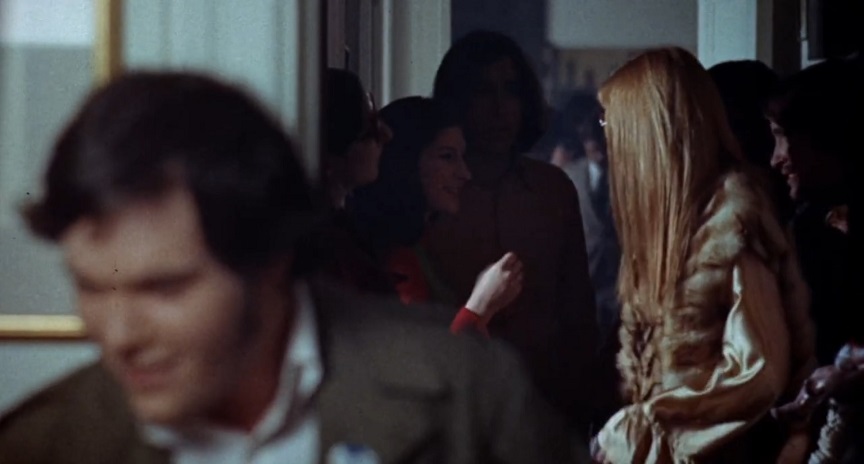
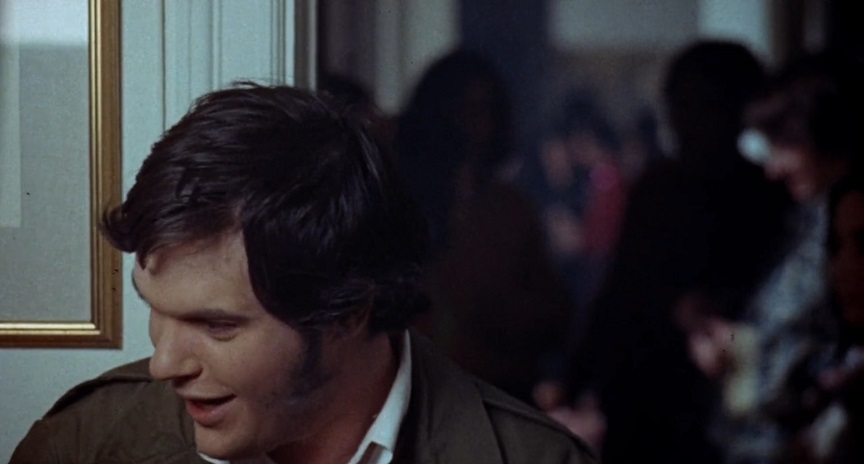
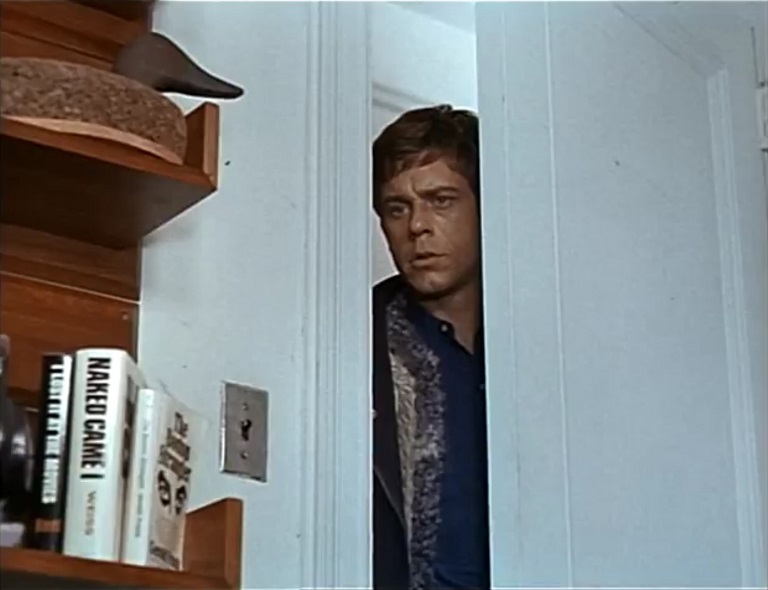
Jonathan Warden's birthname was Ernesto Ciccarelli Jr., although when he was doing theater work in the early 1960s, he was known as Chic Ciccarelli. According to an obituary at Tribute Archive, Ciccarelli, who was born in Staten Island, New York on June 18th, 1937, "passed away peacefully at home in West Palm Beach, Florida on March 17th, 2021." He was 83.
A tribute at Empty Mirror Books suggests that Ciccarelli took his film acting name from two stage plays he'd worked on:
'Chi' Osceola
Christened as Ernest Ciccarelli
in Staten Island, N.Y.
during the period of Guernica.Chi Ciccarelli emerged as an Equity member,
with the Living Theatre whose demise was caused
by too much relevance in an irreverant land.Reborn as Chi Osceola after
living on the Seminole reservation.Among
his many enticing performances
Chi played the warden in The Brig
presented by Julian Beck.Last
as an actor was a film called Greetings
with Robert De Niro, directed by Brian di Palma.
As an actor Chi used the name Jonathan Warden
Jonathan from Oh, Dad, Poor Dad,
and Warden from The Brig.Before
Chi was with the Becks he was
the macrobiotic chef at
The Paradox on East 7th Street
when he was with the
N.Y. Poets' Theater on St. Marks with
Dianne di Prima & Leroi Jones (Amri Baraka).
Moving with unaccustomed solemnity we learned to share the sense of the ordeal that the Marines felt at Fuji Brig, and that is everywhere felt in the schools of submission, in the fraternities of exclusion, in the clubs of the oppressors.Drill was taught according to Marine Corps tactics. Chic Ciccarelli, who played the Brig Warden, was a former Marine, and remembered with touching and terrible closeness the cold, hard exhilaration of the drill. Before each rehearsal the company drilled half an hour, after the lunch break, another half hour. We cleared the lobby of The Living Theatre, and there on the tile floors we marched endless hours. Startled ticket buyers often entered in the middle of a drill master's angry scolding. It was not the polite tone of a theatrical director discussing the character with the actor, it was Ciccarelli screaming, "Get your head up, you lousy maggot!"
The drill however had an enlivening effect. The marching is a ritual of great beauty only grown hideous because it stands for the marches towards the fields of death in battle and because it has come to signify the loss of character that ensues when all of life becomes routed into this exactitude. And because you cannot stop, Meanwhile the rhythm of mutuality entices the kinetic senses. The sense of moving in a mutual rhythm with one's fellow man.
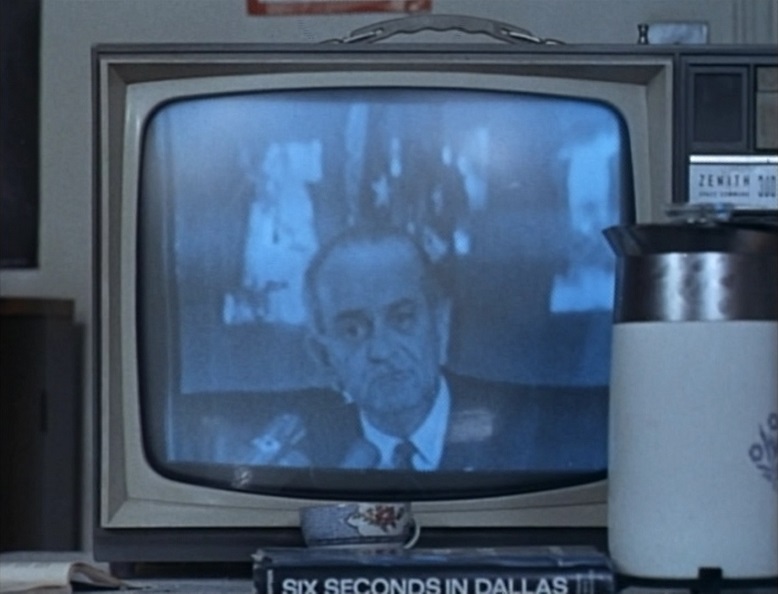

Newer | Latest | Older